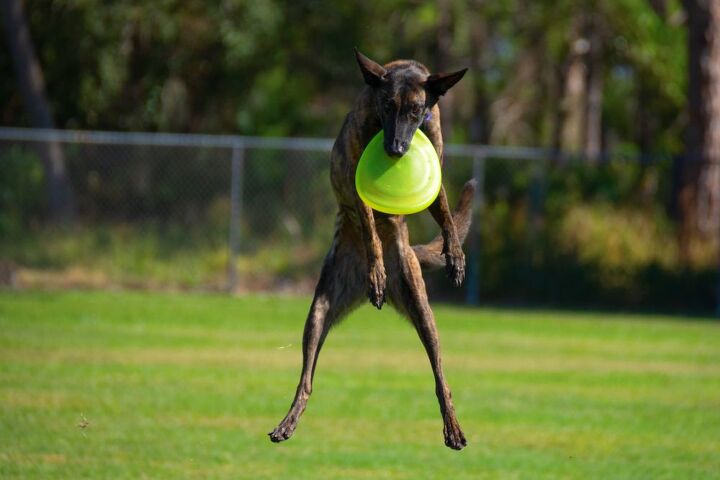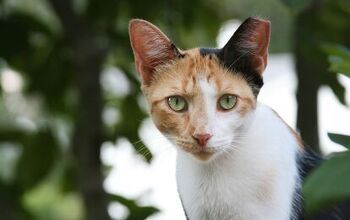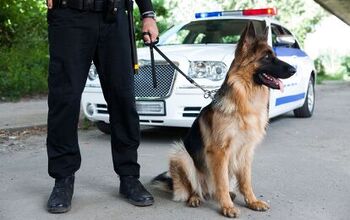Treeing Tennessee Brindle


About Treeing Tennessee Brindle
If you are looking for an intelligent dog with a unique appearance and advanced hunting skills, the Treeing Tennessee Brindle may be the right dog for you. These dogs have an attractive brindle coat that sets them apart from other breeds – they are also intelligent and respond well to training. The Treeing Tennessee Brindle has a naturally lean frame with loose skin and a straight tail along with drop ears and an alert expression.
These dogs have an attractive brindle coat that sets them apart from other breeds – they are also intelligent and respond well to training.
The Treeing Tennessee Brindle is a fairly new breed with its development having only begun in the United States during the early 1960s. When Reverend Earl Phillips became aware of brindle curs while researching for a column he was writing for a hunting dog magazine, he began to contact owners and fanciers of the breed. Reverend Philips discovered that this brindle cur was highly valued for its hunting abilities and, in 1967, he spearheaded a movement to preserve and promote the breed. On March 21, 1967, the Treeing Tennessee Brindle Breeder’s Association was founded and stock was gathered from the area between the Appalachian Mountains and the Ozarks. Today, the breed is still part of the AKC Foundation Stock Service and will be accepted for recognition once the minimum number of registered dogs is met.
The Treeing Tennessee Brindle was developed from the Old Brindle Cur dog, a type of hunting dog with brown coats featuring black tiger stripes.
Related: Treeing Walker Coonhound
Given that the Treeing Tennessee Brindle is a fairly large and naturally active breed, you should consider providing him with a dog food formulated for active dogs, particularly one with a high protein content. You should also make sure that the food is formulated to meet the needs of large-breed dogs. If your dog does not receive daily exercise, be careful not to overfeed him or he may become obese.
The Treeing Tennessee Brindle is an intelligent breed that does extremely well when trained for hunting.
The Treeing Tennessee Brindle is an intelligent breed that does extremely well when trained for hunting. It is important to note, however, that this breed is more sensitive than other dogs so you need to be careful about what training method you choose – positive reinforcement training is recommended. Though a firm and consistent hand in training is required for this breed, the Treeing Tennessee Brindle will not do well if punishment plays a role in training. Once you break this dog’s trust, you are unlikely to ever earn it back. The Treeing Tennessee Brindle has a tendency to bark, so you may want to train him to respond to a “hush” command.
Related: Black Mouth Cur
The Treeing Tennessee Brindle stands between 16 and 24 inches at the shoulder and weighs between 30 and 45 lbs. at maturity. The male of this breed tends to be slightly larger than the female.
The Treeing Tennessee Brindle is an active and friendly dog that tends to be fairly outgoing. These dogs love to spend time with other dogs and they are unlikely to show and dog-on-dog aggression. The Treeing Tennessee Brindle gets along well with people and can be affectionate with family. As these dogs are intelligent, it is recommended that you start training and socialization as early as possible. The Treeing Tennessee Brindle does have some protective tendencies and they like to bark, so they may make a good watch dog but they are not skilled as guard dogs.
For the most part, the Treeing Tennessee Brindle is a healthy breed. These dogs are at risk for ear infections, however, due to their low-hanging ears, and it is recommended that you perform routine dental checks as well. As is true with many large-breed dogs, the Treeing Tennessee Brindle may also be prone to developing hip dysplasia or patellar luxation. Responsible breeding practices can greatly reduce the risk for these and other congenital diseases.
The average life expectancy of the Treeing Tennessee Brindle is between 10 and 12 years.
The Tennessee Brindle is a fairly active dog because it was bred for hunting. While these dogs may be content to lie around the house, they still require a daily walk or jog to work off their excess energy. This breed does particularly well when trained for hunting or to perform certain tasks.
The Treeing Tennessee Brindle is an active and friendly dog that tends to be fairly outgoing.
The Treeing Tennessee Brindle has been part of the AKC Foundation Stock Service since 1995.
The Treeing Tennessee Brindle has a short, smooth coat that is mostly brown with black brindle markings. Some specimens of the breed exhibit white markings on the chest and feet. Because the coat of this breed is so short, only minimal grooming is required – a weekly brushing will be sufficient to control shedding.
The average litter size of the Treeing Tennessee Brindle in unknown, partially because this breed is still being developed. As is true with most dogs, it is important to start the Treeing Tennessee Brindle with socialization and training as soon as possible. These dogs have natural hunting ability so early training will help to develop and shape those skills.
Photo credit: Maria Sivtseva/Shutterstock; Mike Focus/Shutterstock

Kate Barrington is the loving owner of two cats (Bagel and Munchkin) and a noisy herd of guinea pigs. Having grown up with golden retrievers, Kate has a great deal of experience with dogs but labels herself a lover of all pets. Having received a Bachelor's degree in English, Kate has combined her love for pets and her passion for writing to create her own freelance writing business, specializing in the pet niche.
More by Kate Barrington

























